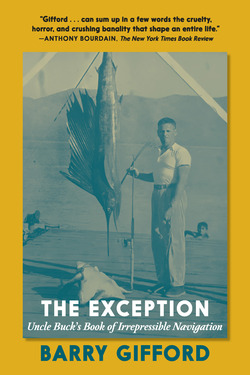Pre-order a copy of the paperback edition on Indiebound!
A masterpiece of mood and setting, character and remembrance, The Cuban Club is Barry Gifford's ultimate coming-of-age story told as sixty-seven linked tales, a creation myth of the Fall as seen through the eyes of an innocent child on the cusp of becoming an innocent man.
Set in Chicago in the 1950s and early 1960s against the backdrop of small-time hoodlums in the Chicago mob and the girls and women attached to them, there is the nearness of heinous crimes, and the price to be paid for them. To Roy and his friends, these twists and tragedies drift by like curious flotsam. The tales themselves are koan-like, often ending in questions, with rarely a conclusion. The story that closes the book is in the form of a letter from Roy to his father four years after his father's death, but written as if he were still alive. Indeed, throughout The Cuban Club Roy is still in some doubt whether divorce or even death really exists in a world where everything seems so alive and connected.
Barry Gifford has been writing his Roy stories on and off for over thirty years, and earlier Roy stories have been published as Wyoming, Memories from a Sinking Ship and The Roy Stories. But it is in The Cuban Club that he brings the form he has created in these stories to its crystallization. Indeed, to find precedents for The Cuban Club, we must look not to other story collections, but to other creation myths--to Gilgamesh, or the Old Testament, or Eduardo Galeano's Memory of Fire trilogy. Roy's age in these stories wends back and forth between six and nineteen and back to twelve. He sees with the eyes of a seer who doesn't seem to age, and knows not to judge the good or the bad in circumstances or people, or even to question why things are as they are, instead filled with the romance of the world teetering on catastrophe always, but abounding in saving graces.
Joy Fun: An Excerpt From Barry Gifford’s New Book, “The Boy Who Ran Away to Sea”


























